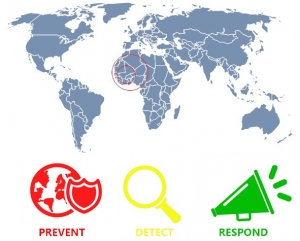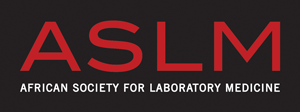Global Health Security in Africa
Updates on the Freetown, Sierra Leone, Regional Global Health Security Consultation:
-
-
- New “Freetown Declaration” advocates for increased prioritisation of functional tiered laboratory networks to close gaps in global health security agenda
- View the press release from the Regional Freetown Consultation.
-
Finding Solutions and Emphasising the Critical Role of Laboratories:
The recent Ebola outbreak in West Africa highlighted the importance of early disease detection and response in preventing the rise of new global health threats.
Early detection requires that rapid disease testing capacity reaches across countries and into rural communities where people live. Health experts in Africa are taking steps to strengthen laboratory networks in order to improve the early detection of outbreaks on the continent.
Significant progress has been made in strengthening laboratory networks since the adoption of the 2008 Maputo Declaration for Strengthening Laboratory Systems and Resolution AFR/RC58/R2 at the 58th session of the World Health Organization Regional Committee for Africa (WHO AFRO), both resulting in the scale-up of diagnostic services for HIV, tuberculosis, and malaria. Emerging threats now require even more responsive and harmonised laboratory networks, which are significantly integrated and aligned with public health institutes for effective surveillance responses.
Together with ASLM and WHO AFRO, high-level Ministry of Health officials from more than 20 countries in Africa have issued a “Freetown Declaration” calling for international and local stakeholders to bolster capacity to establish resilient tiered laboratory networks, regularly measure progress with a standardised score card, and effectively integrate these networks into disease surveillance and public health institutes.

